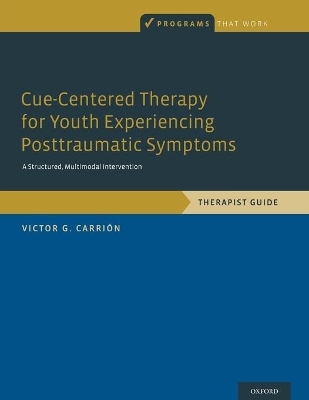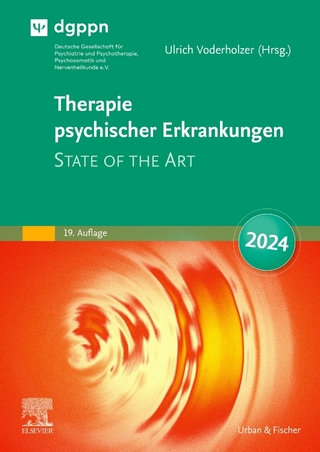
Cue-Centered Therapy for Youth Experiencing Posttraumatic Symptoms
Oxford University Press Inc (Verlag)
978-0-19-020132-6 (ISBN)
Cue-Centered Therapy for Youth Experiencing Posttraumatic Symptoms presents a psychosocial treatment approach for children and adolescents who have been exposed to chronic traumatic experiences. Cue-Centered Therapy (CCT) derives its name from its focus on the conditioning process that results in sensitivity towards trauma-related cues. CCT addresses four core domains: cognition, behavior, emotions, and physiology, through a combination of empirically supported and CCT-specific interventions. This structured and flexible Therapist Guide focuses on helping the youth develop insight into his/her own patterns of behaviors and emotions. Rather than having youth attempt to "unlearn" maladaptive responses conditioned to cues, CCT focuses on creating new connections and behavioral responses. The treatment manual offers guidelines on conducting each of the sessions while respecting the individual therapist's own strengths. Through the use of visual icons, forms, and figures, the manual facilitates teaching relevant lessons. The therapy reduces negative cognitions, allows for emotional expression, identifies and changes trauma-related responses, empowers with knowledge and skills, and strengthens the relationship between the caregiver and his/her child.
Victor G. Carrión, MD, is a Professor of Psychiatry and Behavioral Sciences and Director of the Stanford Early Life Stress and Pediatric Anxiety Program at Stanford University. Dr. Carrión received his M.D. degree at Mount Sinai School of Medicine and completed his psychiatry residency at the University of Pennsylvania. He completed fellowship training in child and adolescent psychiatry, normal development, and developmental trauma at Stanford University. For the past twenty years Dr. Carrión has studied the biological, psychological, and social ramifications of early life stress and worked to develop systems of care that address this major public health issue.
Chapter 1 Introductory Information for Therapists
Chapter 2 Diagnostic Criteria and Assessment
Chapter 3 Assessment of the Child
Phase 1
Chapter 4 Session 1: Education
Chapter 5 Session 2 & 3: Mindfulness, Relaxation, and Cognitive Tools
Phase 2
Chapter 6 Sessions 4 & 5: Chronic Traumatic Stress History
Chapter 7 Sessions 6 & 7: Processing the Chronic Traumatic Stress History
Phase 3
Chapter 8 Session 8: Mid-Therapy Update
Chapter 9 Session 9: Approaching Cues
Chapter 10 Session 10: Imaginary Exposure to Cues
Chapter 11 Session 11: Within Session Exposure to Cues
Chapter 12 Session 12: Evaluation of In-Vivo Exposure Assignment
Phase 4
Chapter 13 Session 13: Processing Chronic Traumatic Stress History 3
Chapter 14 Session 14: Closing Session 1
Chapter 15 Session 15: Closing Session 2
| Erscheinungsdatum | 26.01.2016 |
|---|---|
| Reihe/Serie | Programs That Work |
| Verlagsort | New York |
| Sprache | englisch |
| Maße | 218 x 295 mm |
| Gewicht | 476 g |
| Themenwelt | Geisteswissenschaften ► Psychologie ► Klinische Psychologie |
| Medizin / Pharmazie ► Medizinische Fachgebiete ► Pädiatrie | |
| Medizin / Pharmazie ► Medizinische Fachgebiete ► Psychiatrie / Psychotherapie | |
| Sozialwissenschaften ► Pädagogik ► Sozialpädagogik | |
| Sozialwissenschaften ► Soziologie | |
| ISBN-10 | 0-19-020132-0 / 0190201320 |
| ISBN-13 | 978-0-19-020132-6 / 9780190201326 |
| Zustand | Neuware |
| Haben Sie eine Frage zum Produkt? |
aus dem Bereich


